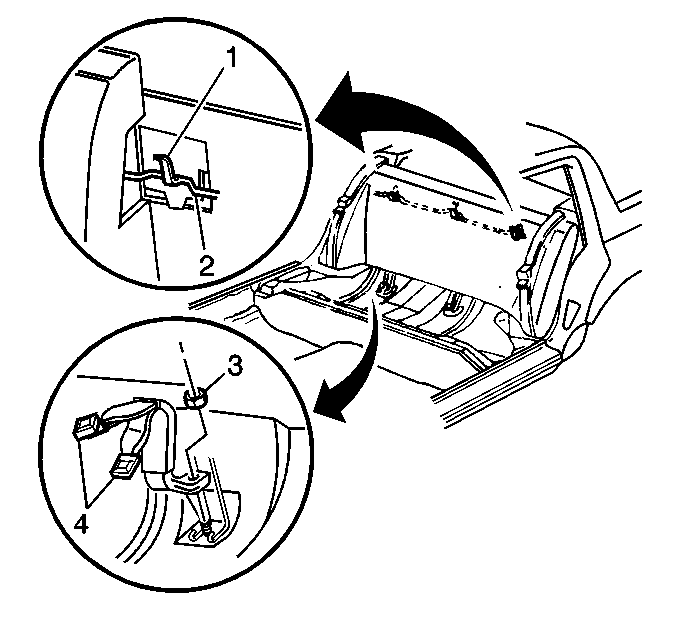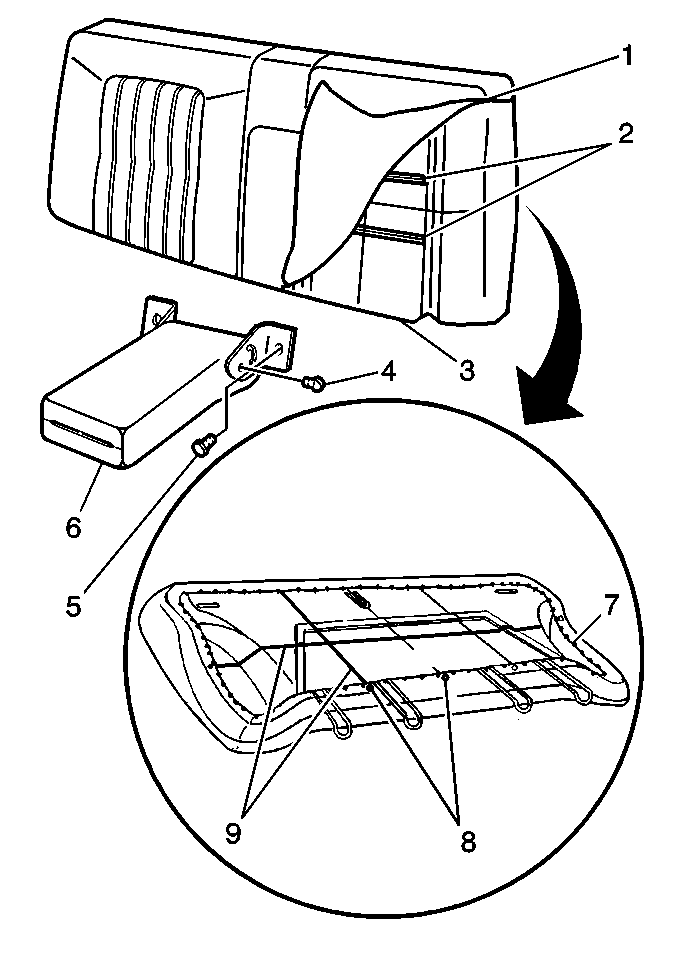Removal Procedure
- Remove the rear seat cushion. Refer to
Rear Seat Cushion Replacement
.

- Remove the following components
from the inner studs:
- Remove the push-nuts from the outer studs.
- Remove the rear seat back from the vehicle.

- Perform the following
steps in order to remove the armrest (6), if applicable:
| 5.1. | Remove the bolts (5) from the seat back. |
| 5.2. | Remove the pivot screws (4). |
| 5.3. | Remove the armrest (6). |
- Remove the hog rings (7) from the seat back frame
- Disengage the hook and loop strips (2).
- Remove the cover (1).
Installation Procedure

- Install the cover (1)
over the pad (3). Align the locating holes (8) in the cover
to the work lines (9) in the pad.
- Install the hog rings (7).
Work outward toward the corners until you have installed all of the
hog rings.
- Turn over the seat.
Engage the hook and loop strips (2).
- Perform the following steps in order to install the armrest (6),
if applicable:
| 4.1. | Secure the armrest (6) to the support with pivot screws (4). |
| 4.2. | Attach the armrest (6) to the seat back with bolts (5). |
- Install the rear seat back.

Notice: Use the correct fastener in the correct location. Replacement fasteners
must be the correct part number for that application. Fasteners requiring
replacement or fasteners requiring the use of thread locking compound or sealant
are identified in the service procedure. Do not use paints, lubricants, or
corrosion inhibitors on fasteners or fastener joint surfaces unless specified.
These coatings affect fastener torque and joint clamping force and may damage
the fastener. Use the correct tightening sequence and specifications when
installing fasteners in order to avoid damage to parts and systems.
- Install the lap
belt nuts (3).
Tighten
Tighten the lap belt nuts to 35 N·m (25 lb ft).
- Verify that the shoulder belts (4) operate freely.
- Install the rear seat cushion. Refer to
Rear Seat Cushion Replacement
.




